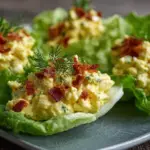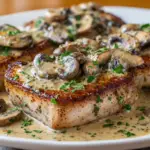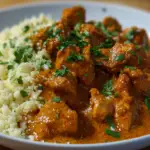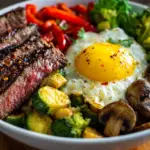Have you ever taken a sip of a loaded tea and felt that sudden rush of energy? If you’re like me, you’ve probably wondered, “How much caffeine is in a loaded tea?” Today, we’re diving into this buzzing question that’s stirring up the world of energy drinks and health enthusiasts alike!

A Deep Dive into Loaded Teas: How Much Caffeine is in a Loaded Tea
Loaded teas are not just your average cup of tea. They’re a blend of tea, herbal extracts, and often, additional supplements designed to ‘load’ you up with energy. But the main buzz around these vibrant drinks is the caffeine content. So, how much caffeine is in a loaded tea? The answer isn’t as straightforward as you might think, as it greatly varies based on the ingredients and the serving size.
Unveiling the Buzz: Surprising Facts About Caffeine in Loaded Teas
- Varying Caffeine Levels: Loaded teas can contain caffeine ranging from 50mg to 200mg per serving, making some variants more potent than a standard cup of coffee.
- Ingredient-Dependent: The caffeine content in loaded teas heavily depends on the specific blend of tea leaves, herbal extracts, and additional supplements used in the concoction.
- Potential Overload: Consuming multiple servings of loaded tea can easily lead to exceeding the recommended daily caffeine intake of 400mg, posing risks of caffeine overdose.
- Stealthy Stimulant: Unlike coffee, where the taste indicates its strength, loaded teas can mask high caffeine levels behind sweet and fruity flavors, leading consumers to inadvertently consume more caffeine.
- Energy Burst or Bust: While some individuals experience enhanced focus and energy from the high caffeine in loaded teas, others may suffer from side effects like jitters, anxiety, or disrupted sleep patterns.
- Not Just Tea: Loaded teas often include not just tea but also a mix of ginseng, guarana, and taurine, compounds known for their stimulating effects, contributing to the overall caffeine content.
- A Trendy Choice: The popularity of loaded teas has surged, especially in fitness and health circles, for their promise of a sustained energy boost without the heaviness of traditional energy drinks.
Also Read: What is a Tea Bomb?

The Caffeine Content Unloaded: How Much Caffeine is in a Loaded Tea
Generally, a standard cup of loaded tea can contain anywhere from 50mg to a whopping 200mg of caffeine. That’s a wide range, right? To put it in perspective, an 8-ounce cup of coffee has about 95mg of caffeine. So, depending on the blend, your loaded tea could be packing more than double the caffeine of your morning coffee!
| Drink Type | Average Caffeine Content |
|---|---|
| Loaded Tea | 50mg – 200mg |
| Regular Coffee | 95mg |
| Green Tea | 20mg – 45mg |
Understanding Your Tolerance
It’s crucial to understand how much caffeine is in a loaded tea, especially if you’re monitoring your intake for health reasons. Caffeine affects everyone differently, and while it may be a great pick-me-up for some, it can cause jitters or other side effects for others. Listen to your body and understand your own caffeine tolerance.
The Balancing Act
While the high caffeine content in loaded teas can be a great energy booster, it’s important to balance your intake. Too much caffeine can lead to restlessness, insomnia, or heart palpitations. So, if you’re enjoying a loaded tea, maybe skip that extra cup of coffee or that energy drink later in the day.

Making an Informed Choice: How Much Caffeine is in a Loaded Tea
Now that you know how much caffeine is in a loaded tea, you can make an informed choice about incorporating these vibrant drinks into your daily routine. Whether you’re looking for that extra kick to get through your workout or just need a midday pick-me-up, understanding the caffeine content is key.
Remember, while loaded teas can be a fun and energizing addition to your day, they’re not a substitute for a balanced diet and a healthy lifestyle. So, enjoy your loaded tea, but also make sure you’re staying hydrated, eating well, and listening to your body’s needs.
Loaded teas are indeed loaded, not just with flavors, but with caffeine too. Now that you’re armed with the knowledge of “how much caffeine is in a loaded tea,” you can sip wisely and enjoy the energy boost that comes with it. Cheers to a more informed and energized you!
FAQs
How can you accurately measure the caffeine content in homemade loaded tea?
Measuring the exact caffeine content in homemade loaded tea can be challenging due to variations in ingredients and preparation methods. However, you can estimate it by considering the caffeine content of each individual component (like the type of tea used) and the amount of each ingredient. Preparing it consistently and being mindful of the total quantity of ingredients will help in maintaining a relatively stable caffeine level per serving.
Are there any low-caffeine or caffeine-free versions of loaded tea?
Yes, some brands offer low-caffeine or caffeine-free versions of loaded tea, catering to those who are sensitive to caffeine or wish to enjoy these flavorful beverages later in the day without disrupting their sleep patterns. These versions typically substitute traditional tea bases with herbal infusions and omit high-caffeine ingredients like guarana.
Can you consume loaded tea daily without health risks?
While enjoying loaded tea daily is a personal choice, it’s crucial to monitor your total daily caffeine intake. The FDA recommends a maximum of 400mg of caffeine per day for most adults. Considering loaded teas can contain up to 200mg per serving, consuming them alongside other caffeinated products could lead to exceeding this limit, potentially causing side effects like restlessness, insomnia, or increased heart rate.
How does the caffeine content in loaded tea compare to that of coffee?
How Much Caffeine is in a Loaded Tea? Loaded tea can have a caffeine content ranging from 50mg to 200mg per serving, offering a broad spectrum of potency. In comparison, an 8-ounce cup of coffee typically contains about 95mg of caffeine. This means that some loaded teas can pack more than double the caffeine punch of your regular coffee, making it a potent alternative for those seeking a stronger energy boost.





Leave a Reply